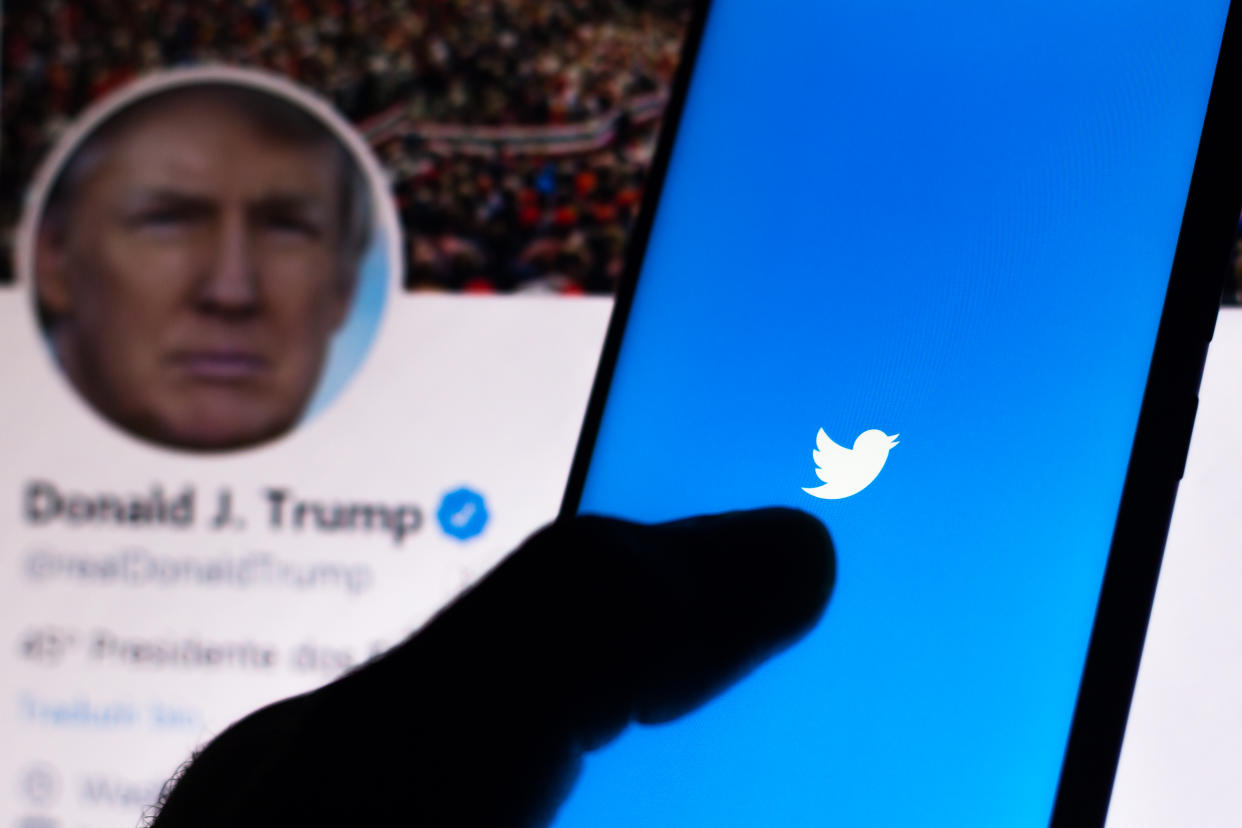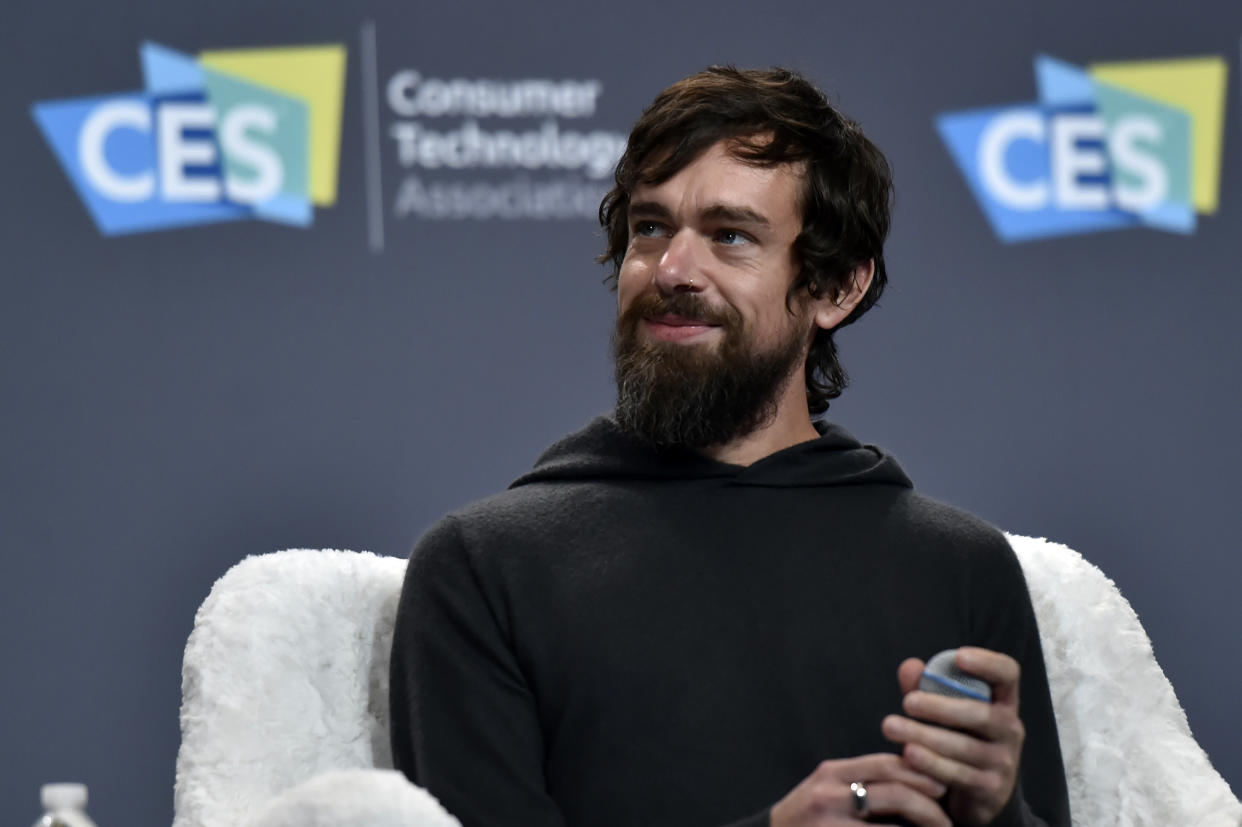Why Twitter (probably) won’t do anything about Trump’s conspiratorial Buffalo protester tweet

At 8:34 am on June 9, President Donald Trump hit send on a tweet laced with innuendo and false information about an elderly protester in Buffalo, New York.
Two police officers have been charged with felony assault after pushing 75-year-old Martin Gugino to the ground in a widely circulated video where he can be seen bleeding as police officers walk by. Gugino remains hospitalized from his injuries.
Trump baselessly made a range of claims, from saying that Gugino “could be an ANTIFA provocateur” to suggesting he “fell harder than was pushed.” The president wrapped up with the question of whether it all “[c]ould be a set up?”
In the hours following the roundly condemned tweet, CEO Jack Dorsey’s mentions were flooded with calls for action but Twitter (TWTR) has not responded.
Here, according to experts, is why the company is unlikely to do so.

‘Is this sufficiently bad enough?’
In an interview with Yahoo Finance, Jesse Blumenthal, who leads Technology & Innovation policy at Stand Together and the Charles Koch Institute, made sure to state off the top that "obviously, the president's tweet this morning is abhorrent."
He then laid out why Twitter has few options for how to take action consistent with their policies.
"Every time the president tweets something offensive, there's going to be a question of: is this sufficiently bad enough," Blumenthal said. But he added, "this is an example of the broader problem of Twitter trying to insert itself as arbiters of truth.”
Twitter has posted about its “principles & approach” to the accounts of world leaders saying they are subject to enforcement actions in response to things like “[c]lear and direct threats of violence against an individual.”
Twitter’s rules also have provisions against “targeted harassment of someone.”
He’s not just heinous but crafted this attack so Twitter could do little. It’s still Alex Jones but using auxiliary verbs to protect his rank cruelty. https://t.co/fYAZlW0sFq
— Kara Swisher (@karaswisher) June 9, 2020
"It's just not clear what policy this would violate," says Daniel Kreiss, an associate professor of media and communication at the University of North Carolina. "To me, it's just a bunch of innuendo.”
"These things are inherently subjective judgement calls," Blumenthal says, noting that "it can't be that Jack Dorsey's job becomes moderating Donald Trump's Twitter account."
Twitter’s past actions
In recent weeks, Twitter has taken action against Trump’s account twice.
Once, it added blue lettering to the bottom of a tweet about voting by mail and urged people to “get the facts” about Trump’s false claims. A second action came against a tweet the company noted was “glorifying violence.”

Twitter did not take action when Trump targeted MSNBC host Joe Scarborough. Those tweets baselessly implied that Scarborough might have had something to do with the death of a staff member in 2001.
The woman’s widower asked Twitter to remove the conspiracy theory in a letter but the company responded by saying the post would remain up, though it was “deeply sorry” for the pain caused.
Differing approaches from Twitter and Facebook
Trump, as usual, also posted his Tuesday message about Martin Gugino to Facebook (FB).
Few expect the company to take action. Zuckerberg, Facebook’s co-founder and CEO, has talked about how the social networking giant approaches controversial posts differently.

“We have a different policy I think than Twitter on this,” he said in a Fox News interview. “I just believe strongly that Facebook shouldn’t be the arbiter of truth of everything that people say online.”
"To me, what's truly a failure is Facebook," says Kreiss about the company’s overall policy toward the president. Kreiss says Facebook leaves up posts – specifically Trump’s post about looters – that "clearly violate their standards."
Facebook’s policies read quite similar to Twitter’s but have been enforced differently. Twitter’s approach, says Kreiss, is to "meet speech with counter speech."
Kreiss advocates a "pretty narrowly tailored line" on the president’s tweets. He would specifically target messages that pass along misinformation about things like elections and the Census. "Anyone vying to be elected or currently holding office,” who seeks to “undermine their own process that the public has to hold them accountable,” should be fact checked, he says.
The core problem, says Blumenthal, is people want the president’s tweets to stop but "the normal mechanisms of shame” which govern other politicians "have broken down.”
Ben Werschkul is a producer for Yahoo Finance in Washington, DC.
Read more:
Trump's 'glorifying violence' tweet is available without a label on Instagram and Facebook
Twitter adds 'glorifying violence' warning to Trump tweet
Donald Trump's love-hate relationship Twitter over the past 8 years
Read the latest financial and business news from Yahoo Finance
Follow Yahoo Finance on Twitter, Facebook, Instagram, Flipboard, LinkedIn, YouTube, and reddit.


